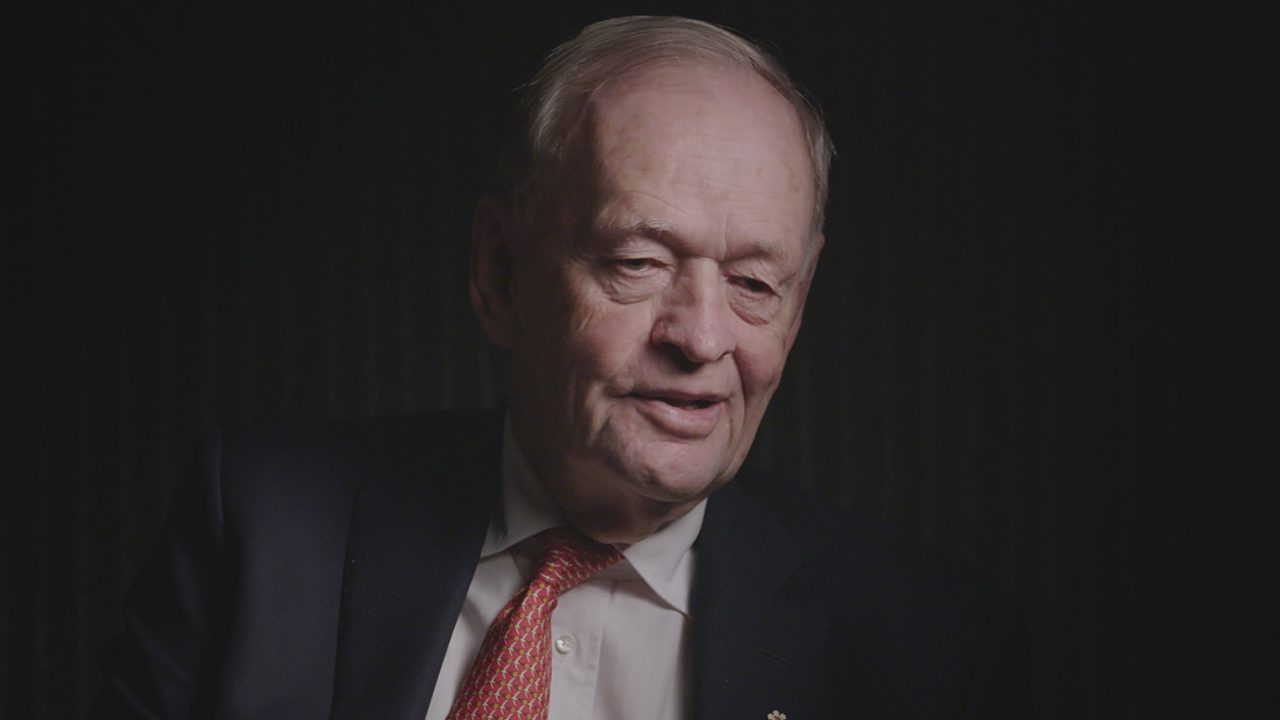
Mini-Lesson for High Wire
Mini-Lesson for High Wire
Mini-Lesson for High Wire
Themes:
- Canadian Politics and Government
- World History
- Canada in the World Today
- Ideologies
Ages: 15-17
High Wire, Claude Guilmain, provided by the National Film Board of Canada
Keywords: Diplomacy, Intervention, Sovereignty, Autonomy, War in Iraq, Gulf War, 9/11, Prime Minister Jean Chrétien, President George W. Bush, Jr.
Warnings: Note that this film does contain a few graphic images of war: children covered in blood, corpses lined up; one image of prisoner abuse shows a still photo of a naked Iraqi soldier (30:26-30:40)
Guiding Question: To what extent can Canada maintain an independent and influential role in world politics?
Summary: High Wire examines the reasons Canada declined to take part in the 2003 US-led military mission in Iraq. The film relies on interviews with key players from the time period, including former Prime Minister Jean Chrétien and his team, as well as current political analysts. While watching the film, students can consider the impact of Canadian diplomacy then and now. Through this mini-lesson, students explore whether or not Canadian diplomacy can be (or should be) independent and influential on the world stage. This film presumes knowledge of the time period, therefore I highly recommend that students go into this lesson knowing basic differences between the 1990 Gulf War, the 2001 War in Afghanistan, and the 2003 Iraq War (Who, What, Where, Why).
The mini-lesson below focuses on Canadian diplomacy, but teachers could also use the film to explore the imposition of ideology by focusing on section 15:00-20:34 of the film, which discusses the Cold War.
Activity 1: Why Intervene? Rank and Order
Have students rank and order the following reasons to intervene militarily in another country:
- Protection of human rights
- Elimination of a corrupt leader
- Protection of economic interests
- Ensuring stability in a world region
- Prevention of an attack against your country
Have students watch this brief clip where General Wesley Clark discusses the early decision of the USA to intervene in Iraq. Note that he is discussing the time period right after 9/11, and there is no connection established between Al Qaeda and Iraq. The search for weapons of mass destruction in Iraq happens later.
After watching the clip, students can discuss the following questions:
- Why do you think the Americans did not want to pursue a military attack on Saudi Arabia, which did have connections to Al Qaeda?
- How does the justification discussed for the Iraq War align with your own ranking of reasons for military intervention above?
- Using your own ranking, which countries merit military intervention today?
End
Students should finish this activity with an enhanced understanding of the many factors that come into play when deciding on military intervention. Teachers can take this discussion one step farther and discuss international law, such as Chapters 6 and 7 of the Charter of the United Nations, as well as Article 5 of the North Atlantic Treaty.
Activity 2: Fake Intelligence? Group Discussion
This video clip starts with a discussion of the early American decision to go to war in Iraq. It later highlights a viewpoint that Canada should obtain independent intelligence and do its own analysis of global affairs.
Have students watch the clip. After the screening, place students in small groups. Ask them to list what they believe are the five most powerful countries in the world. Once decided, students are to discuss whether or not they would encourage the Canadian government to trust intelligence information from any of these countries (and why or why not). Then, still in groups, have students come up with three suggestions to ensure that the Canadian government receives truthful information about events in other countries.
End
Students should leave the discussion with a better idea of the challenges of obtaining sophisticated intelligence. They should realize that all sources of information will hold some bias. Teachers can link this to the need for students to always be on the look-out for bias in everything they read, a key critical-thinking skill that is increasingly important.
Activity 3: Public Relations – Free Write and Discussion
This starts with a pre-screening activity to help students refocus. Students are to free write on the following questions:
Canada is planning to announce a policy that is in direct disagreement with the position of a powerful ally. What is the best way to handle publicity of this controversial policy while at the same time maintaining a positive relationship with your ally? Consider the following:
- Who should be told first? Why? (Options: Canadian Cabinet members, Parliament, Canadian military leaders, leader of the other country, government members of the other country, the Canadian public, the business community, others?)
- Should you make the announcement in private, to the House of Commons, or to the public at large?
After they have written for a few moments, the teacher can lead a brief discussion to collect their ideas.
Watch the film clip above.
After watching the film, ask students to give Canada a letter grade on a sticky note to assess how Canada delivered the message that they would not be joining the USA in the Iraq War. Students should place their grades on the front wall for all to see. Use these grades to compare with others and spark discussion.
End
Students should leave the discussion with a greater appreciation for the importance of details in diplomacy. Have students considered what would have happened if Canada had informed the US first? Or if Canada had refused to answer? Or if no one from Canada had contacted the US government after the announcement?
Take Action: Convincing Canada To Be Independent
Canada’s actions on the international stage are often influenced by our powerful allies. For this Take Action project, students are asked to consider a current foreign policy issue on which they feel Canada needs to take a more independent stance (one that does not line up with the policies of the USA or another ally). This could include any topic linked to international trade, sanctions, human rights abuses, international conflicts, pandemic relief, etc. It would be better if the chosen topic was quite specific, in order to generate real change. For instance, it is hard to get the government to change their entire international trade policy, but it might be possible to convince them to reduce tariffs in a certain sector.
Students are to research Canada’s current position on that topic. They are then to decide what policy changes they feel Canada should take in order to strike a more independent position.
Students can then decide who their target audience should be to try and instigate change: Do they want to convince the Canadian government, or do they want to convince the Canadian public?
For students who wish to convince the Canadian government, they can lay out their arguments in a convincing letter to the Minister of Foreign Affairs. Or they can pretend to be a political advisor and write a memo to the Prime Minister with their suggested actions.
For students who wish to convince the Canadian public, they can select an app of their choice to create a convincing video, graphic or social media campaign.
In either case, the teacher can assess for detailed research and convincing delivery.
Carla McIvor currently teaches Social Studies at West Island College in Calgary, Alberta. She has also taught courses ranging from Philosophy to Comparative Government in British Columbia and Ontario. Carla has a B.A. in Political Science from McGill University, a B.Ed. from University of Ottawa and a master’s degree in International Relations from the University of Geneva.
Pour lire cet article en français, cliquez ici.
Discover more Mini-Lessons | Watch educational films on NFB Education | Watch educational playlists on NFB Education | Follow NFB Education on Facebook | Follow NFB Education on Pinterest | Subscribe to the NFB Education Newsletter



